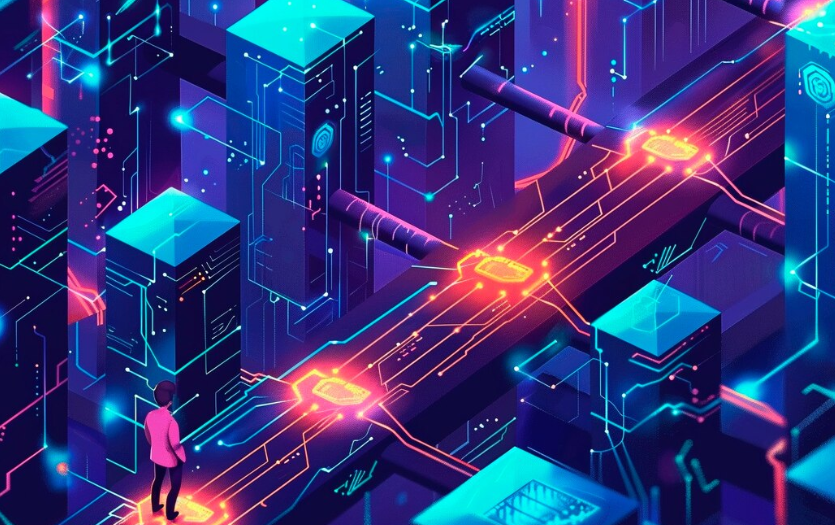Artificial intelligence (AI) is rapidly transforming the world, influencing industries, economies, and daily life. As AI continues to evolve, the next generation will experience a world where intelligent machines play a crucial role in education, work, healthcare, and even social interactions. This article explores how AI will shape the future and what challenges and opportunities it presents for the coming generations.
AI in Education: Personalized Learning Experiences
AI is set to revolutionize education by creating personalized learning experiences tailored to individual students’ needs. Traditional one-size-fits-all teaching methods are being replaced by AI-driven systems that adapt to students’ learning styles, strengths, and weaknesses.
Key benefits of AI in education include:
- Adaptive Learning Platforms: AI-powered educational software can adjust content difficulty in real time, ensuring students receive the right level of challenge.
- Intelligent Tutoring Systems: Virtual tutors provide instant feedback, helping students grasp complex concepts more effectively.
- Automated Grading and Assessment: AI can reduce the workload on teachers by grading assignments and analyzing student performance.
By integrating AI into classrooms, the next generation will have access to more engaging and efficient learning environments.
The Future of Work: Automation and Job Transformation
AI and automation are reshaping the workforce. While some jobs may become obsolete, new career opportunities will emerge in AI development, maintenance, and ethics. The challenge lies in preparing the next generation for an AI-driven job market.
Industries experiencing AI-driven transformation include:
- Manufacturing: Robotics and smart automation are improving efficiency and precision.
- Healthcare: AI assists doctors in diagnosing diseases, predicting patient outcomes, and developing personalized treatments.
- Finance: AI algorithms analyze market trends, detect fraud, and automate trading strategies.
To stay competitive, future workers will need to develop skills in data analysis, AI programming, and critical thinking. Governments and educational institutions must invest in retraining programs to help individuals adapt to the changing job landscape.
AI in Healthcare: Advancing Medical Innovations
AI is revolutionizing healthcare, improving diagnosis, treatment, and patient care. Machine learning algorithms can analyze medical data faster and more accurately than humans, leading to early disease detection and better treatment plans.
Significant advancements include:
- AI-Powered Diagnostics: AI can detect diseases such as cancer and neurological disorders with high accuracy.
- Personalized Medicine: AI analyzes genetic data to create customized treatment plans for individuals.
- Robotic Surgery: AI-assisted surgical robots enhance precision and reduce recovery time.
As AI continues to advance, healthcare will become more accessible, efficient, and personalized, benefiting future generations.
AI in Everyday Life: Smart Cities and Digital Assistants
AI is becoming an integral part of daily life, from smart assistants like Siri and Alexa to AI-powered smart cities designed to improve urban living.
Future applications of AI in society include:
- Smart Transportation: AI-driven self-driving cars and intelligent traffic management systems will reduce accidents and congestion.
- Energy Efficiency: AI optimizes power grids and reduces energy consumption in smart homes and cities.
- Enhanced Security: AI-powered surveillance systems and cybersecurity solutions will protect individuals and organizations from threats.
As AI becomes more embedded in society, ethical considerations such as privacy, bias, and security will need to be addressed.
Ethical Considerations and Challenges
While AI offers numerous benefits, it also raises ethical concerns. The next generation must navigate challenges such as:
- Bias and Fairness: AI systems can inherit biases from training data, leading to discrimination in hiring, lending, and law enforcement.
- Privacy Concerns: AI-powered surveillance and data collection raise questions about individual privacy rights.
- Job Displacement: The rise of automation could lead to significant job losses if not managed properly.
Addressing these challenges requires global collaboration between governments, businesses, and researchers to develop ethical AI policies and ensure technology benefits all of humanity.
Conclusion
AI will play a defining role in shaping the future, impacting education, work, healthcare, and everyday life. While challenges exist, the potential for positive transformation is immense. By preparing for an AI-driven world through education, ethical considerations, and responsible innovation, the next generation can harness the power of AI to create a smarter, more efficient, and inclusive society.


